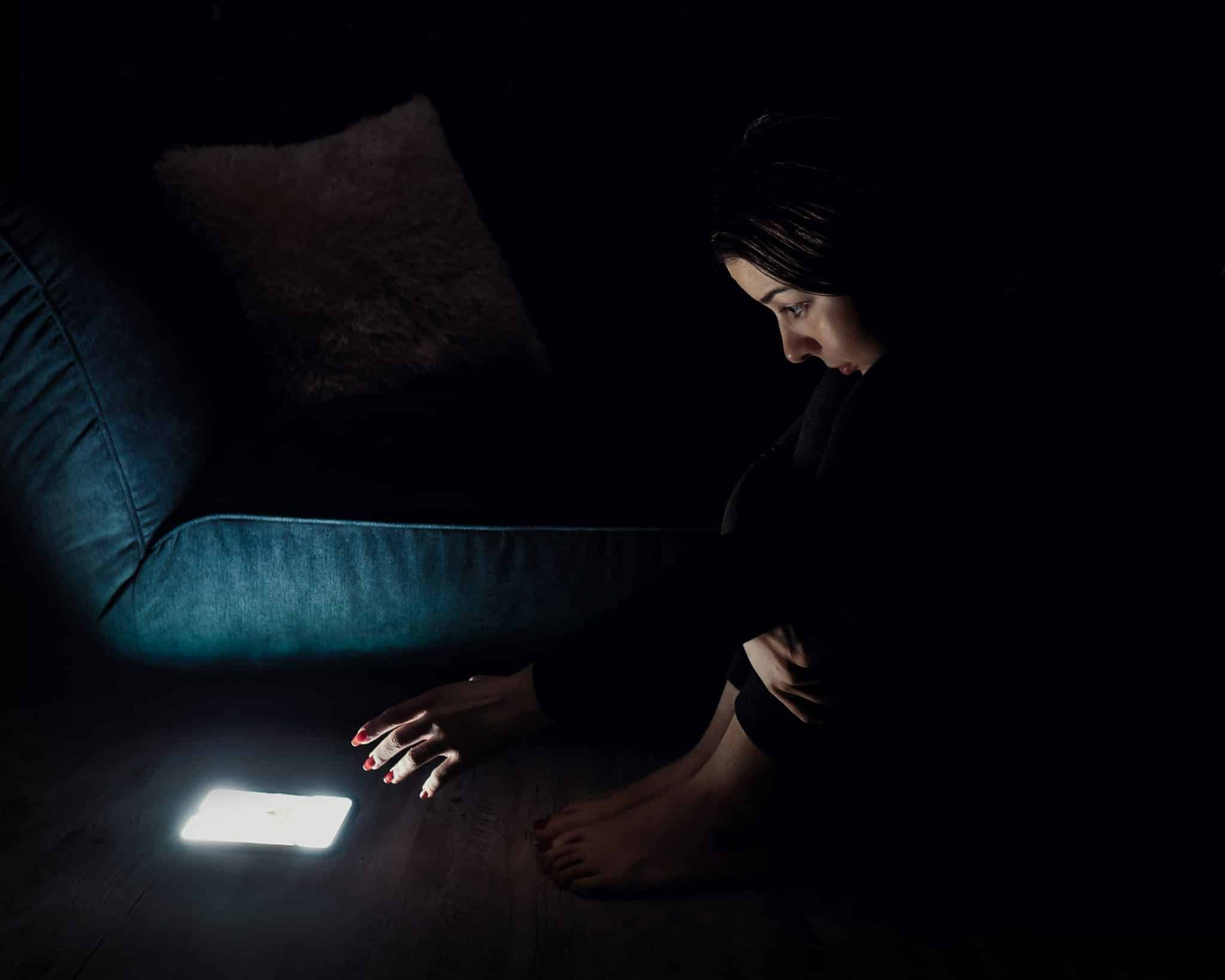Your Evening Routine: An Essential for More Productive Days

Your evening habits should relax you for the night and empower you for the next morning
You’ve heard us talk about the importance of routines and how to build a mindful morning routine to start off your day right. But though it’s less talked about, the evening routine can be just as important when it comes to maintaining and improving health, happiness, and productivity.
Integrate new habits into your evening schedule that feed your mind, body, and soul, and prepare you for a restful night’s sleep.
Routines matter. What does your evening look like?
By the time you get home (or log off) from a long day of school or work, you’ve likely used most of your willpower. Take a look at the way you’ve been arranging your evenings: Do bad habits like killing time on social media, checking work email way past bedtime, or watching a random “crash course in brain surgery” video at midnight become your go-to ways to unwind, leaving you broken, beat, and scarred by the time your head hits the pillow?
You deserve a break in the evening after facing the demands and deadlines of the world around you all day long. But haphazard routines significantly impact how healthy, happy, and productive our lives are, including the quality of your sleep. And we all know that sleep deprivation leads to many issues such as decreased cognitive abilities, worsened health, and strains on social life.
So how can we build a better evening routine when we’re already exhausted? The answer is simple: start small. Integrate new habits into your evening schedule that feed your mind, body, and soul, and prepare you for a restful night’s sleep and the busy morning the next day.
Remember how you crafted your own productive morning routine? Apply the same basic principles of small, consistent changes to your evenings, and watch them flourish into something calm, focused, and joyful.

Ending a day well can be harder than you think
The growing phenomenon of “revenge bedtime procrastination”—where people try to “steal back” their time at night after having given all their daylight hours to work and school—might have slipped its way into your current approach to the evenings.
Even after spending hours upon hours working on assignment after assignment, we’re still surfing the internet and watching YouTube after work. It’s sad, but true. Journalist Daphne K Lee describes why:
“People who don’t have much control over their daytime life refuse to sleep early in order to regain some sense of freedom during late-night hours”.
It’s just a bit too relatable, isn’t it?
It’s somewhat of a Catch-22 where, in attempting to salvage time for yourself outside of work and school, you end up sacrificing your personal health and happiness. And before you realize it, you’ve reached the end of the line for both your work and your personal life.
That’s why it’s important to be mindful of what, why, and how you go through your evenings.
Do your evening habits feed a vicious cycle of tiredness and lack of focus the day after, or do they relax you for the night and empower you for the next morning?
Implementing a calming and mindful evening routine that allows you to disconnect and reflect may be the solution. Here are our suggestions (an evening routine checklist, if you will) on how to make this a reality.
Set a fixed, non-negotiable end-of-day time where your working (or studying) day actually ends.
This notifies your mind and body that it’s time to unwind from work.
Make “EOD” the true end of the day
There’s the modern-day danger of us not really having an “end of the day” to work or school.
Consistently working overtime, checking your email at late hours, or always being at the beck-and-call of notifications makes it impossible to have a private life, much less have a relaxed evening routine.
The first thing, then, is to set a fixed non-negotiable end-of-day time where your working (or studying) day actually ends. This notifies your mind and body that it’s time to unwind from work.
Pampering yourself is a great way to send such a signal to yourself. Consider adding self-care activities like doing some light and easy stretching, sipping a cup of chamomile tea, or adding a face mask into your evening routine.
Read to calm and feed your mind
“The more that you read, the more things you will know. The more you learn, the more places you’ll go.”
Dr. Seuss
Dr. Seuss is right: reading feeds your mind, making you a more empathetic and intelligent person. A 2009 study revealed that just a few minutes of reading significantly reduces stress levels. It’s also a better bedtime routine than endless scrolling.
Former insomniac and The 4-hour Work Week author Tim Ferriss makes reading fiction each night a mandatory activity in his evenings; the same goes for Microsoft billionaire Bill Gates and former president Barack Obama, who read for thirty minutes to an hour before bed as a way to decompress for the night.
Reading every night, even if it’s just a micro habit of a couple of pages each day, lets you learn new stuff, get inspired, come up with new ideas, calm your mind, and enrich your soul. And, you’ll get the satisfaction of finally making a dent in that intimidating list of to-reads.

Preparing for the morning ahead
The morning after isn’t any less important than the night’s sleep ahead of you. In fact, sometimes it’s the worry and pressure of getting everything done tomorrow that’s keeping you up at night.
Spending a few minutes in preparation not only calms your mind and body for the evening but also ensures that tomorrow starts off strong—even just a few minutes of meditation can be a game-changer!
- Do a couple of quick morning chores: Make your lunch, gather your essentials in one spot, or set out your outfit for tomorrow. That way, getting up and out the door in the morning would be less stressful.
- Make a to-do list: Ever had those midnight mini-panic attacks over something you’re afraid you’re going to forget to do tomorrow? Make those experiences a thing of the past by thinking over and jotting down the most important tasks to tackle tomorrow before you sleep tonight.
- Tidy up: A messy room isn’t the nicest thing to wake up to. Why not spend just a couple of minutes cleaning up your desk, wiping down the kitchen counter, or folding that pile of laundry?
As the day slips into night, it’s time to reflect on the day you’ve just lived through.
End the day with thoughts on the good things that happened that day.
Meditation, contemplation, reflection…
As the day slips into night, it’s time to reflect on the day you’ve just lived through. Think of what worked, and what didn’t. End the day with thoughts on the good things that happened that day.
Meditation helps you relax mentally and physically. Mindful meditation aids in releasing that day’s tension and stress. Try taking slow, deep breaths with your eyes closed, and spend a few minutes simply being aware of your thoughts and emotions without judgment.
Journaling allows you to express and record what’s been going on in your inner and outer life over the course of the past day. Physically handwriting thoughts and emotions help you put your day in perspective. As you “brain dump” onto paper, your mind and body let go of conscious and subconscious stress, preparing you for restful sleep.
Having a gratitude practice for each evening—finding something to feel thankful for and expressing that gratitude in some way—furthers your own peace of mind and contributes to deep and restful sleep. Writing in a thankfulness journal, scribbling a thank-you note, or telling your partner what you love about them all count!
We all know that music has a powerful impact on our moods and mental state. Why not play some calm soothing music for a half-hour or so as you prepare for bed? Being emotionally at peace helps relax your body and mind. For best results, try slow music without lyrics.

Put your devices to bed (but don’t bring them with you!)
When the skies darken, it’s time to hit the lights and fade to black.
In our over-connected, available all-day-and-all-of-the-night society, disconnecting from our devices is an increasingly crucial part of any well-crafted, effective, and calming evening routine.
When it’s time to go to bed, turn off your computer, tablet, phone, kindle, and every other electronic device. Put them somewhere that’s hard for you to reach. If scrolling through news feeds and texting with friends at midnight have been part of your nightly ritual up to this point, it’s time to kiss these habits goodbye. Start limiting the time you spend on the internet during after-work hours.
Freedom can be a useful tool in setting up a foil-proof evening decompression schedule. Block the most distracting websites from your devices after a set time to ensure you won’t be clicking through them halfway through the night. And if you want to go hardcore, use Freedom or other web blockers to completely turn off internet access throughout your home during sleeping hours.
In our over-connected, available all-day-and-all-of-the-night society, disconnecting from our devices is an increasingly crucial part of any well-crafted, effective, and calming evening routine.
“But I still can’t sleep!”
Some nights, sleep eludes us even when we’ve done everything to soothe our minds and prepare our bodies for rest.
This could be a case of revenge bedtime procrastination, which we’ve mentioned earlier. If this is the case, setting up strict limits for internet and screen use after work hours is a good place to start. Fighting fire with fire—or in this case, insomnia with the Internet—would leave you at the frayed ends of sanity, and not in the land of dreams. When it’s time to sleep, it’s time to sleep—nothing else matters.
But if you’ve already done that, try doing the following if you still can’t sleep:
- Go for a walk, or do some yoga or light stretching: See if releasing the tension in your body helps with falling asleep.
- Do something creative: If you can’t sleep anyways, why not be productive?
- Ditch alcohol and late-night snacks: These things can rob you of quality sleep, especially alcohol. You’d want a few hours between your last drink/snack and your bedtime.
- Change your sleep environment: Try sleeping with less noise, less light, or a hotter or cooler temperature.

Evenings are important too. How’s yours?
Routines form the foundation of our day-to-day lives. This goes for both your mornings and evenings. Tiny habits you end your day with significantly impact the quality of your sleep and the productivity of the morning ahead.
While some of the action steps we’ve covered may be hard to implement at first, the rewards to be had in sticking to your new evening routine are priceless! Pick one or two new habits to start building into your evening ritual, and begin enjoying restful evenings and quality sleep.


